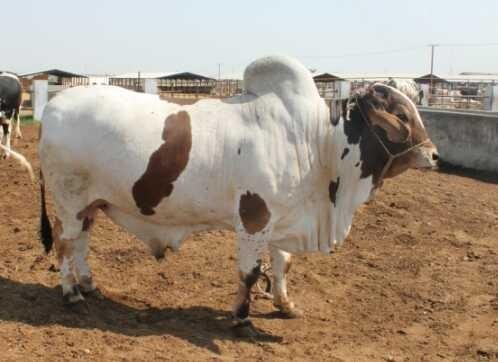explanation of sacrificial animals
explanation of sacrificial animals
hello steemit friend today i will discuss about the sacrifice, this quote I take from https://www.amalqurban.com/the-community-about-budget-in-islam/

congratulations on listening.
The word sacrifice in Arabic means "udlhiyah". Udlhiyah and dluha initially meant "time dluha" which is the time between from 7 am to 11 pm. Then made as a name for sacrifice of sacrifice which its implementation is recommended at dluha time, on day 10, 11, 12 and 13 Dhu al-Hijjah.
The language "udlhiyah" or plural "dlahaya" means animal slaughter, or slaughtering animals in the morning. So the definition of sacrifice (Arabic udlhiyah) is an animal slaughtered on the feast of the sacrifice (Eid al-Adha). In the science of fiqh, sacrifice means slaughtering certain animals with the intention to get closer to Allah SWT. (sacrifice) on the hajj (Eid al-Adha) and / or the Tasriq day (dated 10,11,12 and 13 dzulhijjah).
Meanwhile, according to Wahbah al-Zuhaili, the sacrifice (udlhiyah) is a language for a slaughtered animal, or for an animal slaughtered during the feast of Eid al-Adha, whereas according to the sacrifice fiqh is slaughtering a certain animal with the intention of drawing closer to God in a certain time . Muhammad al-Khatib al-Syarbani gives the definition of sacrifice (udlhiyah) as follows:
وهي ما يذ بح من النعم تقربا العيد إلى أخر أيام التشريق
Meaning: "Sacrifice is an animal slaughtered from a livestock to approach God on the feast of Eid al-Adha until the end of tasyrik day."
And according to Al-Jaziri the sacrifice is to mention something of animal of the type of cattle slaughtered or made sacrifice to get closer to Allah SWT. in the feast of Eid al-Adha whether he is performing the pilgrimage or not doing work. From the definition of definition above, the sacrifice is slaughter of livestock conducted on the feast of Eid al-Adha and until the end of the day
tasyrik (dated 11,12 and 13 Dhu al-Hijjah) to become self-reliant to Allah SWT.
The Basic Law of Sacrifice
The Qur'an and al-Sunnah as the main source of Islamic law mention a lot about sacrifice, and ordered clearly and firmly among them:
ولكل امة جعلنا منسكا ليذ كروا اسم الله على مارزقهم من بهيمة
Meaning: "And for every people have We shouted slaughter (sacrifice) so that they will mention the name of Allah to the livestock that Allah has given to them". (Surat al-Hajj: 34)
The verse of the Qur'an shows the suggestion that sacrifice to get closer to Allah SWT. by slaughtering livestock. Another verse in the letter al-Kautsar stated, as follows:
إنا أعطيناك الكوثر. فصل لربك وانحر. إن شانئك هو الأبتر.
Meaning: "We have indeed given you so much blessing. So establish prayer for thy Lord, and sacrifice, verily those who hate you are the one who is cut off ". (QS: al-Kautsar: 1-3)
The letter shows that always worship Allah SWT. And sacrifice as a sign of gratitude for the blessings He has bestowed. While the hadith of Prophet SAW which became the basis of the law of sacrifice such as:
يا يهاالناس ان على كل أهل بيت في كل عام أضحية (رواه أبو داود)
It means: "O mankind, for every house expert in every year circumcised is sacrificed". (Abu Dawud).
The hadith of the Prophet SAW explains that the sacrifice is not determined for one time but circumcised every year if there is a willingness to sacrifice. In another hadith the Prophet (s) said:
عن أبي هريرة: أن رسول الله صلى الله عليه وسلم قال: من كان له سعة ولم يضح فلا يقربن مصلانا (رواه احمد وابن ماجه)
Meaning: "From Abi Hurairah: Verily Rasulullah SAW said: Whoever has the ability but not sacrifice, so do not he approached our prayer place". (HR Ahmad and Ibn Majah)
The above nash arguments, according to the scholar's jumhur that the law of sacrifice is circumcision muakad and not obligatory. But according to Abu Hanifah the law of sacrifice is obligatory, because according to Abu Hanifah a command
demanding obligations. The term is obligatory here according to Abu Hanifah his position is slightly lower than the fardlu, and higher than the sunnah, because the law is obligatory, then sin the person who abandoned him if he belonged to a capable person. In addition Hanafi madzhab said that the law of sacrifice is sunnat muakad and not mandatory, but diperakruhkan for people who are able to sacrifice and not perform sacrificial worship.
History Disyari'atkannya Sacrifice
Sacrificial worship including the shariah of Prophet Ibrahim A.S. and he was the first to do it. The Prophet said:
عن زيدبن أرقم قال: قال أصحاب رسول الله صلى الله عليه وسلم: يارسول الله ما هذه الأضحي? قال: سنة أبيكم إبراهيم (واه ابن ماجه)
Meaning: "From Zaid Ibn Argam said: the Companions of the Prophet SAW said: what is wrong with this sacrifice? The Prophet said: Sunnah is your father